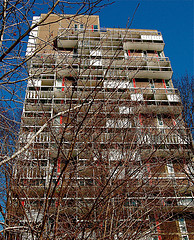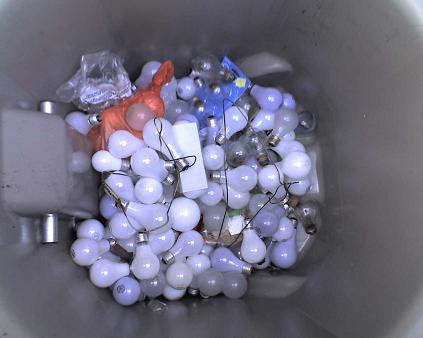 On March 6th, 84 residents at Peabody Terrace participated in an incandescent light bulb swap for compact fluorescent bulbs. Residents received one free CFL for every incandescent bulb they turned in—over 200 efficient CFLs found homes. The CFLs were provided by the Cambridge Energy Alliance and Harvard Real Estate Services (HRES). HEET, CEA, and HRES organized the promotion and logistics of this successful competition.
On March 6th, 84 residents at Peabody Terrace participated in an incandescent light bulb swap for compact fluorescent bulbs. Residents received one free CFL for every incandescent bulb they turned in—over 200 efficient CFLs found homes. The CFLs were provided by the Cambridge Energy Alliance and Harvard Real Estate Services (HRES). HEET, CEA, and HRES organized the promotion and logistics of this successful competition.
During the swap, residents learned about other ways to cut their carbon emissions—seasonable tips also available—and many signed up for a two-month long competition to see who can reduce them the most.
The results are in!
- Apartments reduced their electricity use by an average of 11%
- The top six winners reduced their electricity use by 30%
- And the first place prize winner reduced electricity use by 58%

Winners received several enticing prizes including Smart Strips; credit at Zip Car; and gift certificates/cards from Clear Conscience Café, Shaw’s and Harvest Co-op Market.

 The oft overlooked local treasure,
The oft overlooked local treasure, 